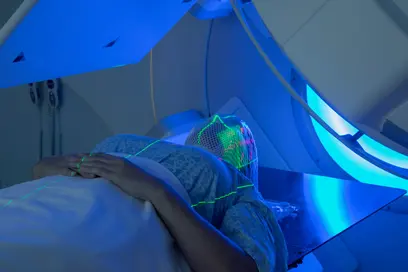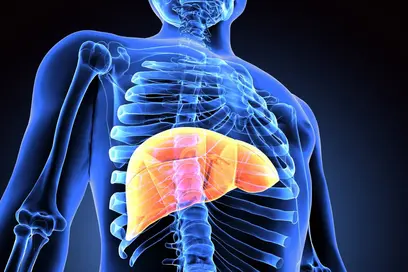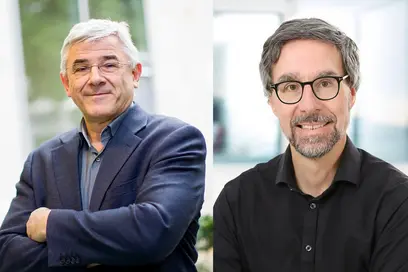Dr. Stephan Herzig and his working group “Molecular Metabolic Control" at the German Cancer Research Center (DKFZ) is one of four research teams that have been awarded research grants from the Novartis Foundation for Therapeutic Research in 2005. The Heidelberg molecular biologists will receive funds of 150,000 euros in the next three years for their planned project on arteriosclerosis research.
Future research work will be focused on malfunctions of the insulin-dependent metabolism. Insulin is a hormone which induces the uptake of sugar (glucose) in muscle cells, fat cells and liver cells. It also plays an important role in the transmission of signals to cells of the immune system called macrophages or scavenger cells. In his research work, Herzig is investigating indications suggesting that these macrophages can become resistant to insulin. As a result, the cells take up increased levels of cholesterol. Their accumulation in the blood vessels can lead to the formation of dangerous plaques in the arteries, a process known as arteriosclerosis. If these plaques start traveling, they can block the coronary vessels or vessels of the brain, which may lead to a myocardial infarction (commonly known as heart attack) or stroke.
Stephan Herzig is studying a protein named RIP140. As he found out, this molecule is found both in insulin-resistant liver and muscle cells and in macrophages. “We believe that RIP140 controls the fatal cholesterol uptake and the release of signaling substances." Herzig will conduct new studies to verify this assumption. His long-term goal is to develop new drugs to slow down RIP140 and, thus, the development of arteriosclerosis, thereby checking the scavenger cells.
These findings may also be useful for cancer treatment. In tumor cachexia, a frequent condition associated with advanced cancer, the insulin metabolism also malfunctions. Cachexia causes wasting and loss of strength. At least 50 percent of cancer patients suffer from this symptom. Due to an overall weakening of the body’s defensive force, the chances of success of a treatment like chemotherapy are much smaller. Herzig hopes to pin down the disease-causing defects in the glucose and lipid metabolisms. Together with his team, he will identify genes and gene products which increase susceptibility to metabolic diseases. In a second step, they will examine whether these may be suitable as drug targets. So far, the researchers have found three genes qualifying as candidates.
About DKFZ
With more than 3,000 employees, the German Cancer Research Center (Deutsches Krebsforschungszentrum, DKFZ) is Germany’s largest biomedical research institute. DKFZ scientists identify cancer risk factors, investigate how cancer progresses and develop new cancer prevention strategies. They are also developing new methods to diagnose tumors more precisely and treat cancer patients more successfully. The DKFZ's Cancer Information Service (KID) provides patients, interested citizens and experts with individual answers to questions relating to cancer.
To transfer promising approaches from cancer research to the clinic and thus improve the prognosis of cancer patients, the DKFZ cooperates with excellent research institutions and university hospitals throughout Germany:
- National Center for Tumor Diseases (NCT, 6 sites)
- German Cancer Consortium (DKTK, 8 sites)
- Hopp Children's Cancer Center (KiTZ) Heidelberg
- Helmholtz Institute for Translational Oncology (HI-TRON Mainz) - A Helmholtz Institute of the DKFZ
- DKFZ-Hector Cancer Institute at the University Medical Center Mannheim
- National Cancer Prevention Center (jointly with German Cancer Aid)
The DKFZ is 90 percent financed by the Federal Ministry of Research, Technology and Space and 10 percent by the state of Baden-Württemberg. The DKFZ is a member of the Helmholtz Association of German Research Centers.


